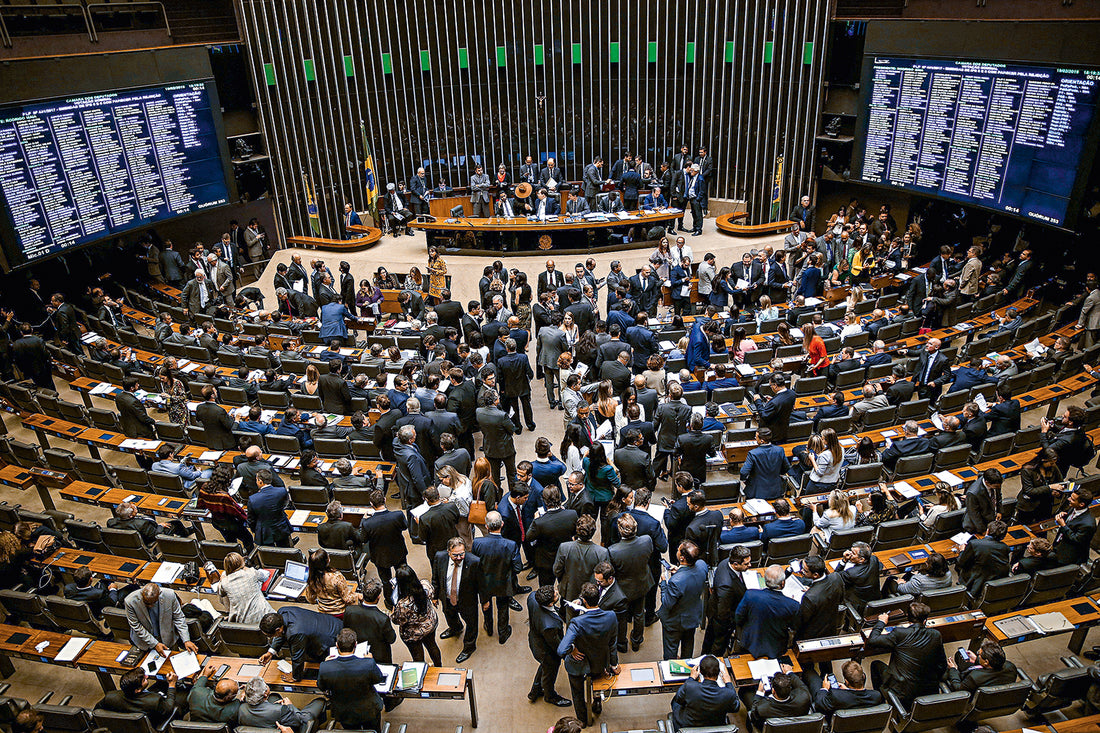
Chamber of Deputies: Tuesday's session with crucial votes
The Chamber of Deputies will have a decisive session this Tuesday, May 28, to vote on the Senate's amendments to Bill 6233/23, which standardizes the application of interest to contractual debts. The proposal, previously approved by deputies in March, underwent changes in the Senate and is now back for review.
How important is Bill 6233/23?
Bill 6233/23 aims to standardize the application of interest on contractual debts. This means that all contracts will have a standard rule for the application of interest, providing more predictability and legal security for creditors and debtors. The approval of this project can positively influence the business environment in Brazil, reducing legal disputes and facilitating the understanding of contracts.
- Uniformization of Interest : The standardization of contractual interest can reduce litigation, as it reduces the subjective interpretation of contracts.
Green Mobility and Innovation
Another crucial point on the agenda is Bill 914/24, which proposes the creation of the Green Mobility and Innovation Program (Mover). This program provides tax benefits for automakers that invest in low-carbon technologies, such as hybrid and electric vehicles, in exchange for investments in research and innovation.
What is the Green Mobility and Innovation Program (Mover)?
Mover is an initiative designed to encourage automakers to adopt sustainable practices, offering tax benefits in exchange for investments in green technologies. The proposal seeks to stimulate the production of less polluting vehicles and encourage research and innovation in the automotive sector.
- Tax Benefits : Automakers that invest in sustainable technologies will receive tax incentives.
- Research and Innovation : The benefiting companies will be required to invest in research, promoting technological advancement in the automotive sector.
Taxation device controversy
A controversy involves the inclusion of a provision in the rapporteur's text that taxes imported purchases of up to 50 dollars. This point generated disagreements between the parties, with the government and opposition parties discussing the need for an alternative solution.
Why is taxing purchases up to 50 dollars controversial?
Taxing small imports is a sensitive point because it directly affects consumers who use e-commerce platforms to purchase products from abroad. The measure can be seen as a way to protect the national industry, but it can also be perceived as an increase in the tax burden on consumers.
- Impact on Electronic Commerce : Taxation can discourage international purchases, negatively impacting consumers.
- Protection of National Industry : On the other hand, it can encourage the purchase of national products, strengthening the domestic economy.
Streaming Regulation
Bill 8889/17, which regulates on-demand audiovisual content services, such as Netflix, Hulu, Vimeo and Now, will also be voted on. This project aims to establish clear rules for the offering of streaming services in Brazil, seeking to balance competition between national and international platforms.
What does streaming regulation imply?
Streaming regulation seeks to ensure that international platforms operate under the same conditions as national platforms, promoting fair competition. The proposal may also include obligations related to the production of local content, encouraging Brazilian culture.
- Fair Competition : Establishing equal conditions for all platforms can promote a more balanced market.
- Local Content : Regulation can encourage the production of Brazilian content, enriching national culture.
Suspension of Rural Debts in Rio Grande do Sul
Bill 1536/24, which suspends the payment of rural credit debts by producers in Rio Grande do Sul for two years, will also be discussed. This measure aims to alleviate financial pressure on farmers in the region, allowing them to recover from economic adversities.
How important is the suspension of rural debts?
The suspension of rural credit debts offers temporary relief to farmers, allowing them to reorganize themselves financially without the pressure of immediate payments. This is especially important in times of economic crisis or natural disasters.
- Financial Relief : The measure provides financial relief for rural producers, helping with economic recovery.
- Agricultural Sustainability : Facilitating debt restructuring can contribute to the long-term sustainability of the agricultural sector.
Active Debt Securitization
Complementary Bill 459/17, which regulates the securitization of active debt of the Union, states, Federal District and municipalities, will be the first item on this Wednesday's voting agenda. Securitization involves the sale at a discount of the rights to receive a debt, tax or otherwise, allowing the government to obtain immediate resources.
How does active debt securitization work?
Securitization allows the government to convert rights to receive debt into immediate cash, selling those rights to investors at a discount. This can provide liquidity for the government, but it also implies a loss of future revenue due to the discount.
- Immediate Liquidity : The measure provides immediate financial resources to the government.
- Loss of Revenue : Sale at a discount means that the government receives less than the total value of the debt.
Concluding
The session in the Chamber of Deputies this Tuesday will be crucial, with the vote on projects that could significantly impact the Brazilian economy and society. From standardizing contractual interest rates to creating green mobility programs, each proposal has profound and complex implications. Active participation and debate are essential to ensure that the decisions made are the best possible for the country.
We would like to know your opinion on the projects discussed in the Chamber of Deputies. Leave your comments and join the debate!


















































